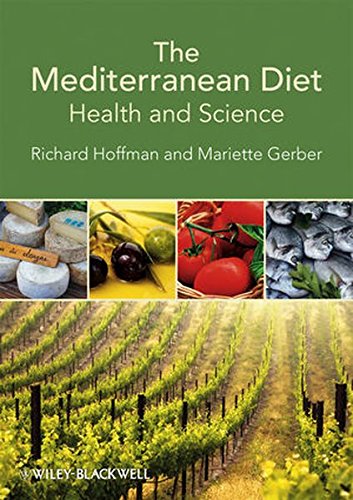

Most ebook files are in PDF format, so you can easily read them using various software such as Foxit Reader or directly on the Google Chrome browser.
Some ebook files are released by publishers in other formats such as .awz, .mobi, .epub, .fb2, etc. You may need to install specific software to read these formats on mobile/PC, such as Calibre.
Please read the tutorial at this link. https://ebooknice.com/page/post?id=faq
We offer FREE conversion to the popular formats you request; however, this may take some time. Therefore, right after payment, please email us, and we will try to provide the service as quickly as possible.
For some exceptional file formats or broken links (if any), please refrain from opening any disputes. Instead, email us first, and we will try to assist within a maximum of 6 hours.
EbookNice Team

Status:
Available4.4
7 reviewsThe Mediterranean Diet: Health and Science is a timely, authoritative and accessible account of the Mediterranean diet for nutritionists and dieticians. It discusses the Mediterranean diet in the light of recent developments in nutritional biochemistry, disease mechanisms and epidemiological studies, and also provides advice on nutrition policies and interventions.
The Mediterranean Diet: Health and Science opens with an overview of the Mediterranean diet, and this is followed by a survey of the latest epidemiological evidence for its health benefits. There is detailed nutritional information on olive oil, wine, fish, fruit and vegetables and other components of the Mediterranean diet, and this information is used to explain how the diet protects against a range of age-related diseases. The book emphasises the importance of understanding the Mediterranean diet in its totality by discussing the evidence for beneficial interactions between various components of the diet. There are also discussions of how agricultural practices, as well as food preparation and cooking techniques, influence the nutritional quality of the diet. The book concludes by discussing the social context in which the Mediterranean diet is eaten, and public health issues associated with adopting a Mediterranean diet, especially in the context of more northerly countries.
Written by nutritional biochemist Richard Hoffman and a past President of the French Nutrition Society, Mariette Gerber, who between them have many years experience in this area, this exciting and highly topical boook is an essential purchase for all nutritionists and dietitians worldwide. Libraries in all universities where nutrition, dietetics and food science and technology are studied and taught should have copies of this excellent book on their shelves